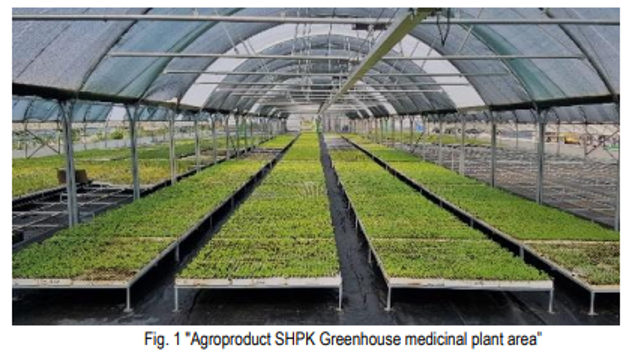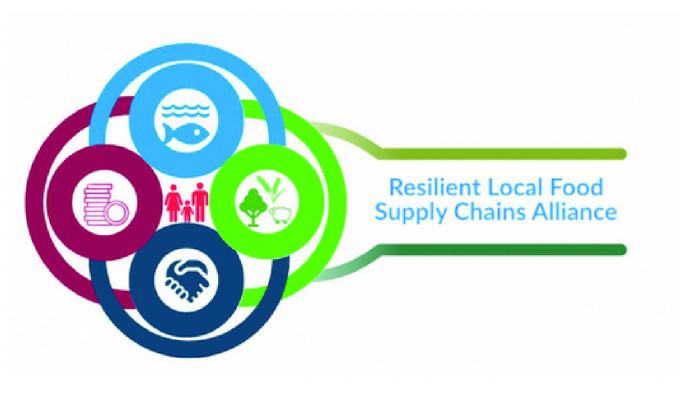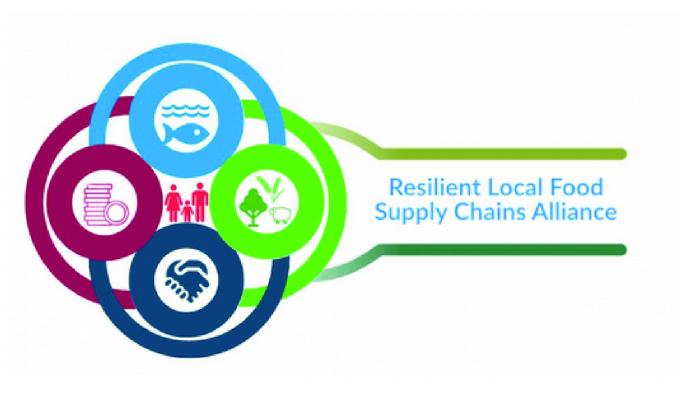GOOD PRACTICE

Sustainable cultivation, collection, and processing of medicinal and aromatic plants in Kosovo
Kosovo

Agroproduct-shpk has started a sustainable approach to medicinal and aromatic plant (MAP) cultivation in Kosovo, balancing economic growth with environmental conservation. By training farmers in organic farming techniques and establishing certified collection zones, the initiative safeguards biodiversity while enhancing the quality of Kosovo’s MAP exports. Advanced drying technology ensures the preservation of therapeutic properties, increasing market competitiveness. Despite challenges related to market access and political instability, Agroproduct’s scalable model has strengthened rural livelihoods and positioned Kosovo as a key player in the global MAP industry.
You must be registered to see all the content
Kosovo has embraced sustainable cultivation, collection, and processing of medicinal and aromatic plants (MAPs) as a model for good practice, balancing economic opportunity with environmental stewardship. Farmers and local communities are trained in sustainable harvesting techniques to protect biodiversity, ensuring that wild plant populations are not depleted. The introduction of organic farming methods for cultivating high-value MAPs minimizes environmental impact while meeting international quality standards. Additionally, processing facilities equipped with modern technology help preserve the plants' therapeutic properties, adding value to the final products. By integrating traditional knowledge with contemporary practices, this approach not only supports rural livelihoods but also strengthens Kosovo's position in the global MAP market. These efforts showcase a holistic approach to sustainability, fostering economic growth while safeguarding natural resources for future generations.
Methods and Stakeholders:
- Sustainable Farming and Organic Cultivation: Agroproduct evaluates potential plots for organic cultivation, applying methods such as crop rotation and the use of animal manure to maintain soil fertility and minimize environmental impact. These practices ensure that the farming process is sustainable, with long-term benefits for both the land and the local communities involved.
- Collaboration with Local Collectors: Agroproduct has built strong partnerships with over 370 local collectors across Kosovo, training them in the best practices for plant collection, storage, and drying. The company’s support system ensures that collectors are equipped with the necessary tools and knowledge to operate in compliance with organic certification standards.
- Certified Collection Zones: Agroproduct has established five certified collection zones located in biodiverse regions across Kosovo. These zones are specifically designated for the collection of wild plants, ensuring that the collection process is done in an environmentally responsible manner, maintaining biodiversity and protecting the natural habitats of the plants.
- Innovative Drying Technology: A key innovation in Agroproduct’s operations is its advanced drying technology, which ensures that medicinal plants retain their beneficial properties while being processed. This technology has helped improve the quality of the final product, making it more competitive in international markets.
- Training and Capacity Building: Agroproduct places a strong emphasis on capacity building through training programs that equip local farmers and collectors with the skills to adopt sustainable agricultural practices. These training programs cover organic farming techniques, the use of technology in plant processing, and the importance of biodiversity preservation.
Kosovo has dealt with some serious challenges when it comes to using its natural resources effectively, largely because of the long-standing political instability in the region. Years of conflict have taken a heavy toll on agriculture, causing many traditional farming practices and the collection of local plants to fall by the wayside. This neglect hasn’t just hurt the economy; it’s also led to environmental issues, limited access to markets, and a general lack of understanding about the potential benefits of organic medicinal plants. All these issues have stunted the growth of the agricultural sector and prevented Kosovo from making the most of its rich variety of plant resources.
Agroproduct’s model is not only effective in Kosovo but also has the potential to be replicated in other regions with similar agro-climatic conditions. The company’s success has already demonstrated the feasibility and scalability of the system, which has contributed to the development of local communities and the creation of job opportunities. By empowering local farmers and collectors, Agroproduct has improved livelihoods and provided new economic opportunities in rural areas. Furthermore, Agroproduct’s sustainable practices have opened up new markets for Kosovo’s medicinal plants, enhancing the country’s export capacity. The company has expanded its reach to international markets, including the European Union, the United States, and Canada, which has helped elevate Kosovo’s agricultural profile on the global stage.
The practices implemented by Agroproduct are technically feasible, owing to their simplicity and scalability. The use of organic farming methods, combined with innovative drying technology, allows local farmers to easily adopt these practices. Agroproduct has developed a strong support infrastructure, including training programs and ongoing guidance, to ensure that these practices can be easily transferred to other regions. The combination of accessible technologies and local knowledge makes this model viable even in less-developed rural areas.












